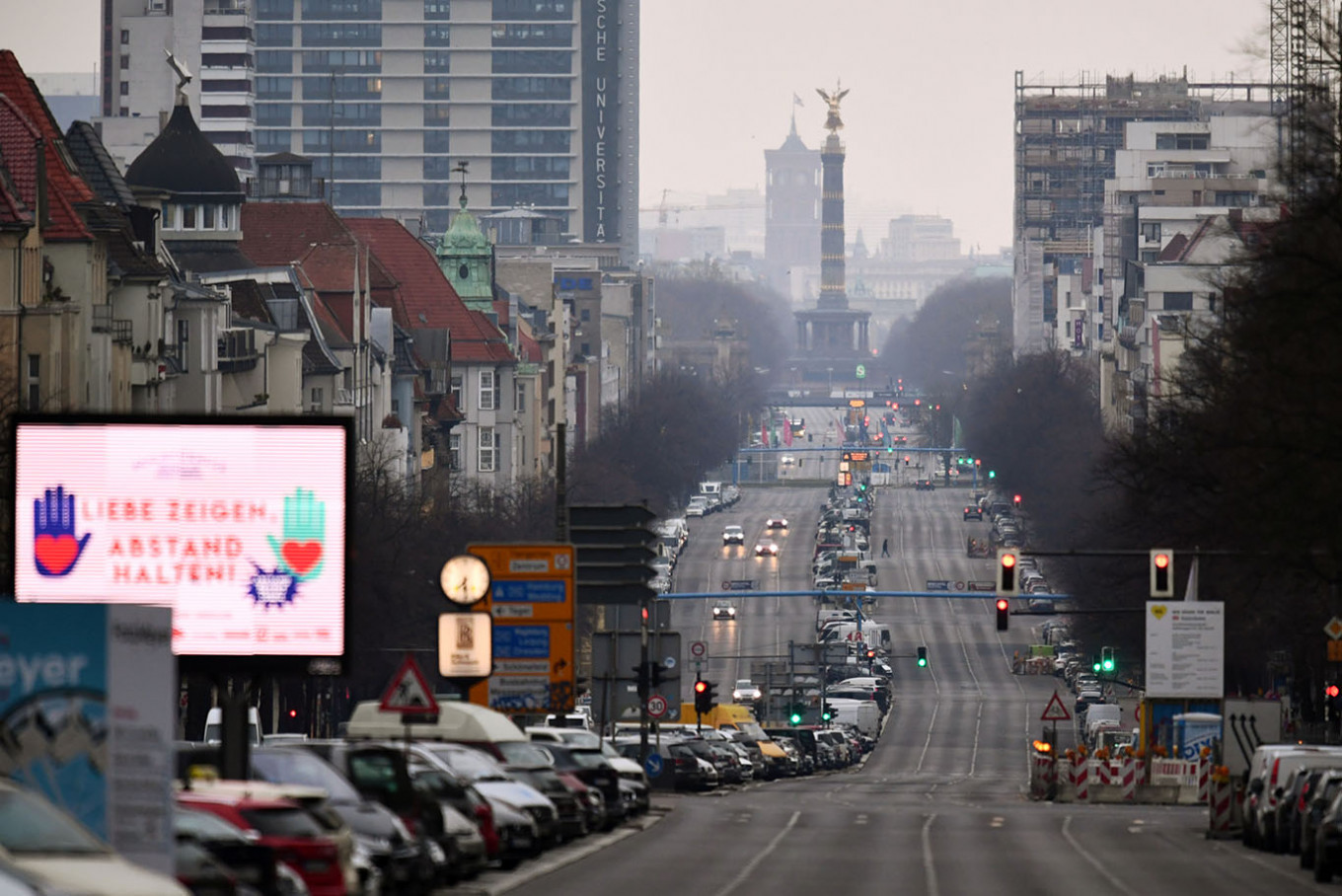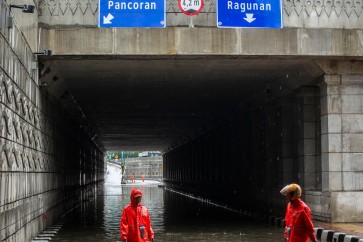Germany to guarantee 100% of loans to smaller firms in virus aid package
The federal government will stand fully behind 500,000 euros (US$540,000) of lending to companies with up to 50 employees and 800,000 euros for larger ones.
Change text size
Gift Premium Articles
to Anyone
 A general view of the almost empty street Kaiserdamm, as the spread of coronavirus disease (COVID-19) continues in Berlin, Germany, March 29, 2020. (REUTERS/Annegret Hilse)
A general view of the almost empty street Kaiserdamm, as the spread of coronavirus disease (COVID-19) continues in Berlin, Germany, March 29, 2020. (REUTERS/Annegret Hilse)
B
erlin will guarantee 100 percent of loans made by banks to small- and medium-sized firms, German government sources told AFP Monday, in an extension to the 1.1-trillion-euro coronavirus crisis package in Europe's top economy.
The federal government will stand fully behind 500,000 euros (US$540,000) of lending to companies with up to 50 employees and 800,000 euros for larger ones, upping its guarantee level from a previous 80 percent for large firms or 90 percent for smaller ones.
Berlin's economic aid so far totals over 1.1 trillion euros, the finance ministry said in an answer to an opposition parliamentary question seen by AFP Monday.
Ministers have agreed a 600-billion-euro "economic stabilisation fund" offering 400 billion euros of guarantees for companies' debts, 100 billion to lend directly to or buy stakes in troubled firms, and 100 billion euros to fund state investment bank KfW.
Meanwhile the amount of company borrowing KfW can guarantee has been boosted by 357 billion euros, for a total of 822 billion.
To keep their liquidity flowing, companies will also be able to delay tax payments.
Read also: Indonesia’s budget to fight COVID-19: What we know so far
Berlin says it will offer 50 billion euros of support for small and one-man-band companies, like photographers, musicians or carers.
Depending on the number of employees, individual companies will receive up to 15,000 euros each to keep the lights on over a period of three months.
Meanwhile freelancers applying for unemployment benefit will not be forced to seek new work.
Germany has also eased access to a programme that tops up workers' pay with government cash when their hours are slashed.
The scheme is widely credited with saving large numbers of jobs during the financial crisis of 2008-9.
Berlin expects more than two million people to work shorter hours in the coronavirus crisis, far outstripping the peak seen over a decade ago.
To cover the costs, the federal labour agency (BA) will start eating into its massive cash reserves of 26 billion euros.
With 156 billion euros in new borrowing to fund the largesse and extra health spending, Berlin has been forced to suspend a "debt brake" added to the constitution at the height of the financial crisis in 2009.
A further 82.2 billion euros of measures have been announced by Germany's federal states and municipal governments, as well as 63.2 billion in guarantees.









